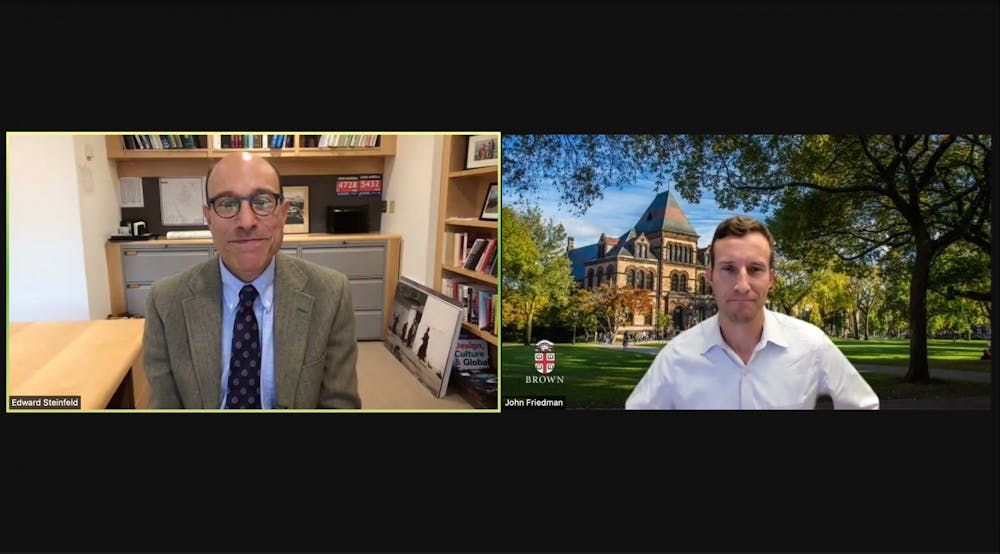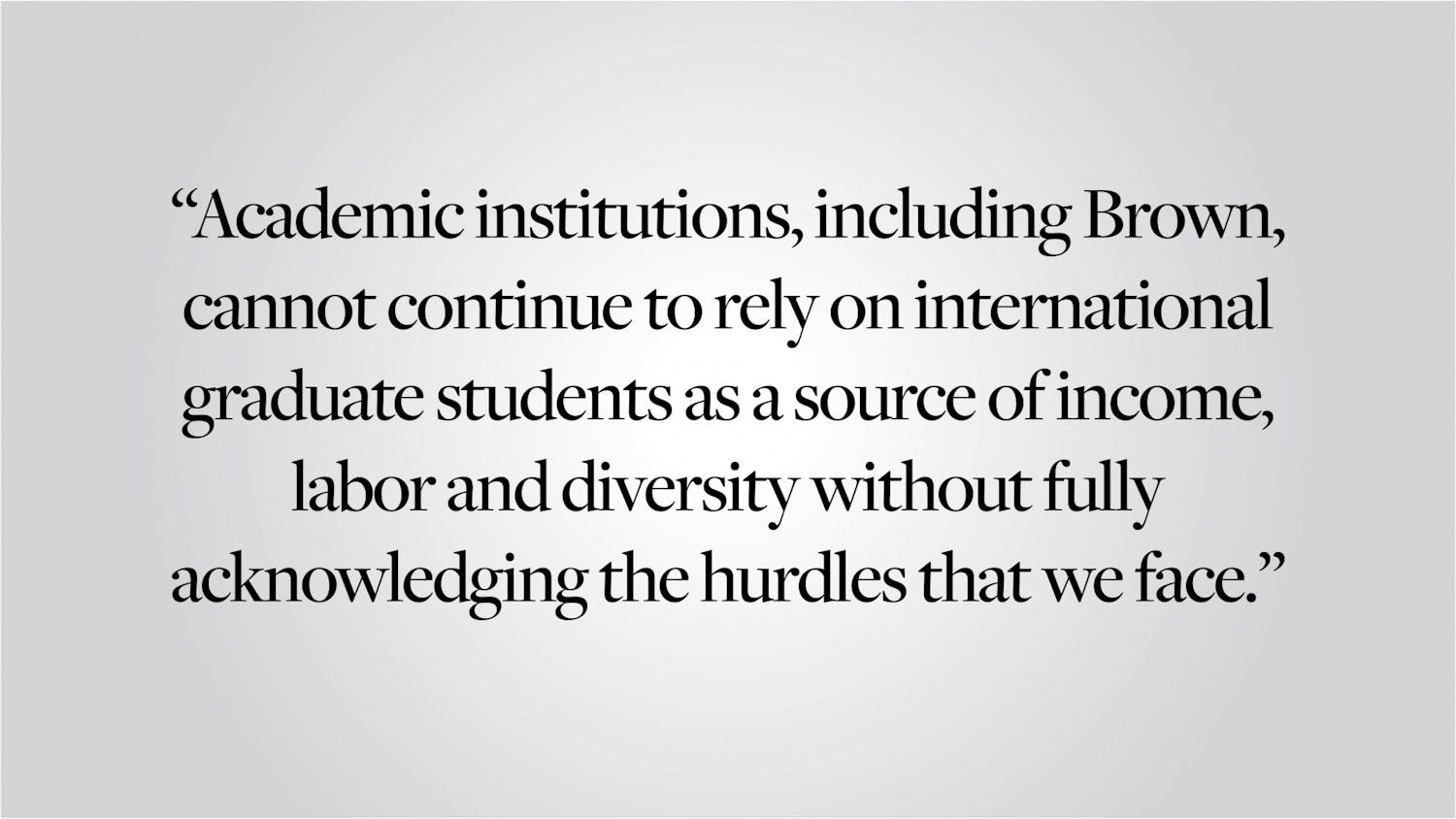Vartan Gregorian, Brown’s 16th president and former president of the Carnegie Corporation, died last April and was honored in a virtual event yesterday for his commitment to diversity, peace and equal opportunity. “Fostering a More Just and Peaceful World — Vartan Gregorian and His Legacies at the Watson Institute” featured a faculty panel that celebrated Gregorian’s impact in the field of public and international affairs.
Gregorian was the first immigrant to serve as the president of Brown. During his tenure from 1989 to 1997, he oversaw a period of diversification and internationalization within the University that expanded Brown’s role as a global institution and saw the founding of a number of new departments.
James Head, professor of earth, environmental and planetary sciences, described how Gregorian “radically changed Brown” from “a pretty homogenous, basic American” university to a diverse and multicultural community by spearheading initiatives to attract international students.
“All those flags you see flying at graduation — that is Vartan Gregorian’s legacy,” said Head. “That was so enriching for students from elsewhere, but also for students from America.”
Gregorian was always willing to help support students, even when it came out of his own pocket. When he heard that a small group of Brown students was unable to afford three meals a day, “he gave me access to his personal credit card, and weekly I would invite five or six students for meals at home,” said Lina Fruzzetti, professor of anthropology and a friend of Gregorian. “They did not know about his contribution, and he wanted it that way.”
Before arriving at Brown, Gregorian headed the New York Public Library system, assuming office at a time of dire financial need for the organization. Gregorian succeeded in raising hundreds of millions of dollars over his eight-year term and largely revitalized New York City’s aging libraries.
“Such a powerful and positive memory of me from the 1980s was my parents’ reaction to witnessing the phoenix-like transformation of the New York Public Library system achieved under Vartan Gregorian’s leadership,” said Edward Steinfeld, director of the Watson Institute.
“To see such a crucial institution of social mobility resurrected — and then made available to the next generation of children of immigrants and newcomers — was so powerful to anybody and everybody who witnessed it,” he added.
Professor of International and Public Affairs and Political Science Margaret Weir, whose research focuses on spatial inequality in American metropolitan areas, echoed the importance of Gregorian’s work in the library system. Much of Weir’s research focuses on the effects of a lack of federal public assistance on the local level, which “provides for a sector that shields the affluent” while doing “little in the way of equalization.”
“There are a few bright spots,” said Weir. “In my research, one of the things that I’ve seen is that even in poorer cities and suburbs that don’t have robust public sectors, libraries have stepped up to play a role far beyond that of book providers.”
Multiple professors in the Watson Institute emphasized Gregorian’s continuing legacy in the department.
“Vartan Gregorian was, as his friends remember him, a fierce advocate for peace,” said Reid Pauly, assistant professor for nuclear security and policy and political science. Pauly cited Gregorian’s “deep historical understanding that taught him to have an empathy for the interests of all states yet an optimism that those interests could be managed when they clashed.”
Head described Gregorian as friendly and witty. He recounts a time that his wife, then a master’s student at RISD, was walking across the Green during freshman orientation. “This short, burly guy rushed up and hugged her, and said, ‘Welcome to Brown!’ And of course it was Vartan out there, welcoming the freshman class.”
“He holds a special place,” said Vinnetti. “And only he can fill it.”
Charlie Clynes is the managing editor of digital content on The Herald's 134th Editorial Board. Previously, he covered University Hall and the Graduate Labor Organization as a University News editor.





